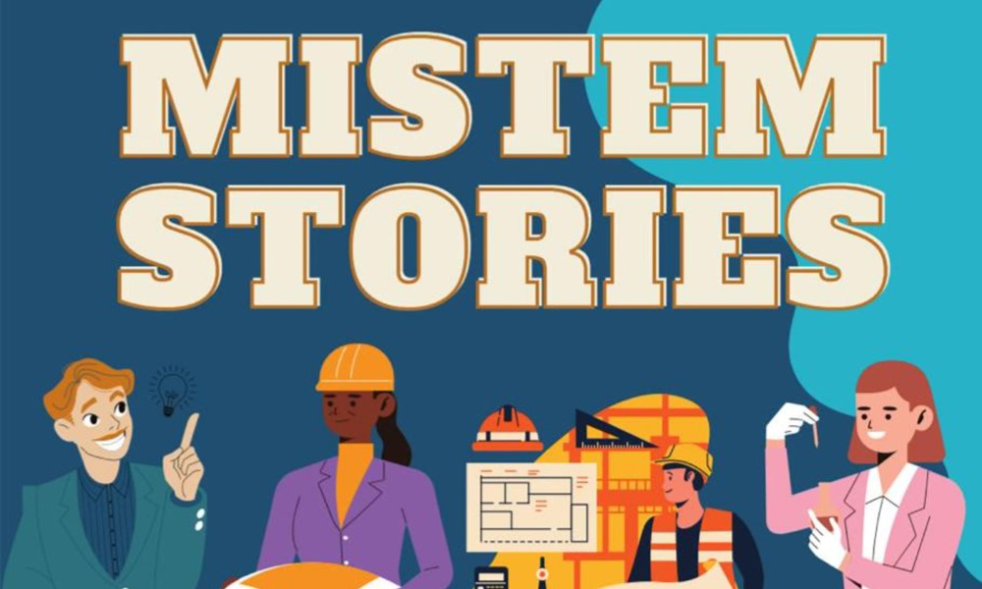On the evening of Mar. 3, the Society of Black Engineers (SBE), Society of Women Engineers (SWE) and Society of Hispanic Professional Engineers (SHPE) joined forces to host the MiSTEM Stories event.
The discussion panel featured current students and alumnus who shared their experiences of being minorities in STEM and offered advice and support to students entering STEM related fields.
Promotional materials for the event described it as a “collaborative event that features student voices to foster discussions around diversity, inclusion, and equity for underrepresented groups in STEM fields.”
The event featured topics of discussion such as overcoming obstacles and impactful inclusivity.
In the first section of the event, entitled “Storytellers,” students shared anecdotes about the obstacles they faced in their STEM education.
Many of these obstacles stemmed from their race or gender, and they discussed many ways in which they worked to overcome those obstacles.
Salmata Barrie, third-year EE, said she struggled with imposter syndrome. There was low representation of Black women in her field and she was being overlooked for professional opportunities at the very events she was leading.
She relied heavily on organizations like SBE to help build her confidence and to teach her to navigate networking opportunities in her major.
Mahogany Labor, first-year CHBE major, agreed.
“Inclusive groups create better work,” Labor said, explaining why she turned to inclusive organizations on campus.
The speakers encouraged minority students to utilize their unique perspectives, experiences and ideas to elevate themselves in their personal lives and career.
“Your identity is your advantage,” Labor said.
Through their stories, the students illustrated the importance of organizations like SBE, SWE and SHPE and the increasing relevance of the intersections between these organizations.
Many of the speakers at the event possessed more than one minority identity and were a part of more than one of the host organizations.
Students like Labor, an Afro-Latinx woman and part of SBE, SWE and SHPE, emphasized the importance of these organizations in helping her to find people who looked like her and shared her experiences.
These clubs also provide a platform to support future generations of students with similar identities.
The speakers also solidified the importance of unity between the inclusivity organizations.
Together, these organizations have created a broad and diverse network of minority professionals in different STEM-related fields for members to rely on and connect with.
In the second portion of the event, the focus transitioned to Tech alumni answering questions and offering advice on how to navigate being a minority in various STEM fields in the workplace as a future career.
“Having a different culture or a different background can give you a lot of viewpoints and see things that other people may not be able to see,” said Carla Lorente, ME ‘20.
Each of the speakers shared an understanding that isolation and discrimination are common experiences for women and people of color in STEM. STEM fields are dominated by white people and men. This often leads to minorities in these fields being treated as a novelty or dismissed as part of a quota.
However, many companies do little to help with racial and gender inequity beyond fulfilling a data point. Alumni and students also shared a common solution to combat inequity in their field — advocating for yourself and those around you.
The panelists implored that students should not be intimidated by being “the only one” in the spaces they occupy.
Rather, the panelists encouraged students and to speak up in the face of fear and isolation.
Speakers stressed the point that such advocacy by and on behalf of minorities can be crucial for creating space for future generations of minorities in STEM, especially these days.
“We can advocate for one another in the workplace or any space we occupy,” said Melissa Minneci, ME ‘10. To find out more information about SBE, SWE and SHPE, visit gtsbe.org, swe.gtorg.gatech.edu and gt-shpe.com.
